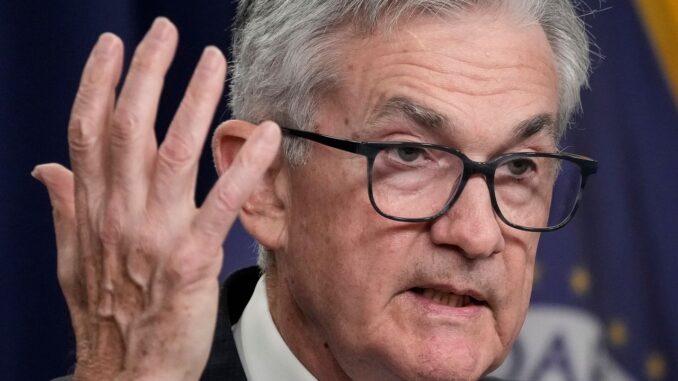
US equities fell on Wednesday as investors turned cautious on comments from Federal Reserve officials that US interest rates would have to rise to combat inflation. The blue-chip S&P 500 ended 1.1 percent lower as traders’ concerns lingered that rates may rise more than they expected since last week’s blockbuster US jobs report.
The headline number of the payrolls report released last Friday was far higher than economists expected and led to a sell-off in US stocks and bonds. Fed chair Jay Powell on Tuesday stressed the need for further rate rises to cool the economy. US markets initially responded positively to Powell’s comments.
On the same day, Minneapolis Fed president Neel Kashkari said that ballooning jobs growth was proof that the Fed needed to “raise rates aggressively”. The dollar index, a measure of the US currency’s strength against a basket of six peers, pared early gains to add 0.1 percent, while the yield on the 10-year Treasuries was down 0.05 percentage points at 3.63 percent. The yield on two-year Treasuries ticked down 0.03 percentage points to 4.44 per cent.
Traders said there may be more clarity on the Fed’s next move with the publication of consumer price index, retail, and inflation data next week. “It’s evident now that the Fed is data-dependent. All eyes will be on the CPI print next Tuesday. It’s evident that disinflation has begun but services have yet to follow,” said Sam Gunter, head of foreign exchange trading at Britannia Global Markets.
The tech-heavy Nasdaq shed 1.7 percent, weighed down by a 7.4 percent fall for Google parent Alphabet after a technology glitch in its new artificial intelligence software disappointed investors. Equities in Europe gave up early gains as US markets headed lower. The benchmark Stoxx 600 finished 0.3 percent higher, while Germany’s Dax closed up 0.6 percent.
The FTSE 100 rose 0.3 percent, hitting an intraday record high before easing back. “Europe has a natural correlation with the United States, so when sentiment there improves it drives sentiment across European markets,” said Mobeen Tahir, director of macroeconomic research and tactical solutions at WisdomTree Europe.
“We assess that stock markets are starting to realize that policy tightening is not necessarily crippling the economy. Markets are learning to live with higher rates, a profound change from last year.” Yields on 10-year German government bonds fell slightly to 2.34 percent. Separately, the European Central Bank said it would cut the maximum rate it paid on government deposits to encourage investors to put their money in the market.
On commodities markets, Brent crude, the international benchmark, pared early gains to settle 1.7 percent higher at $85.09 a barrel, while its US counterpart, WTI, increased 1.7 percent to $78.47 a barrel. In Asia, the Hang Seng index closed flat, down less than 0.1 per cent, while the Chinese CSI 300 fell 0.4 per cent.
Source: www.ft.com
#StockMarket #Investing #InterestRates #MarketOutlook #EconomicNews



